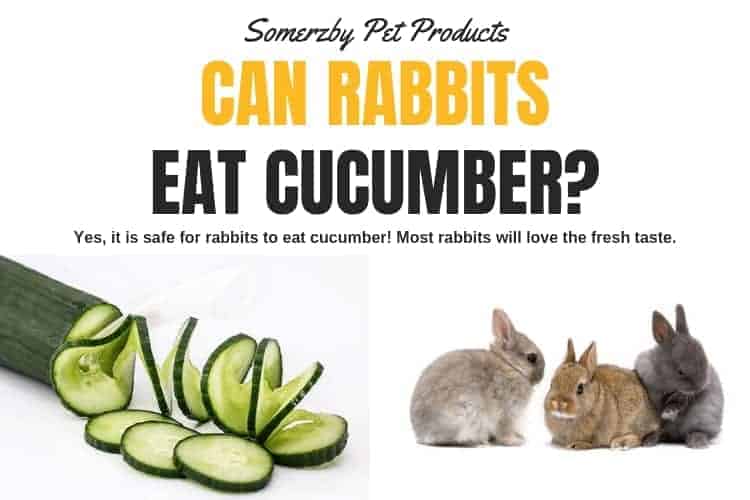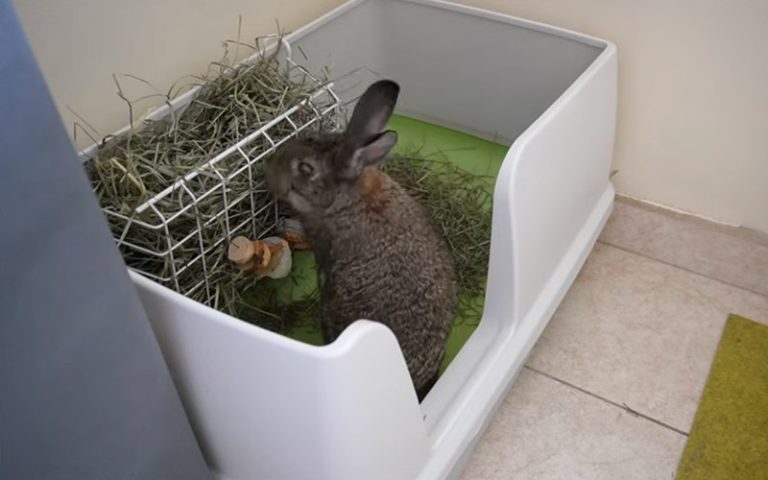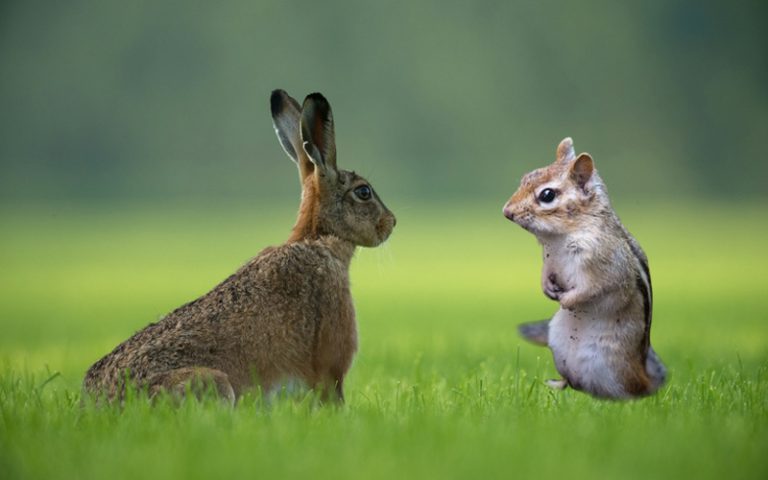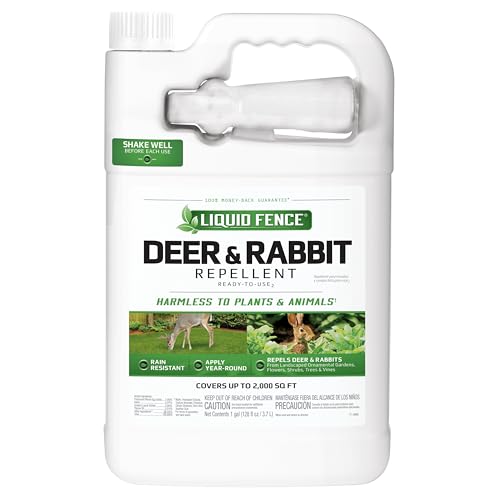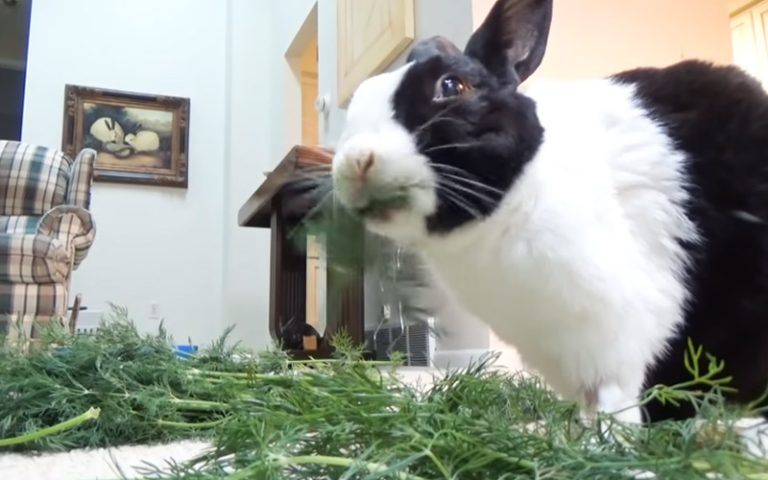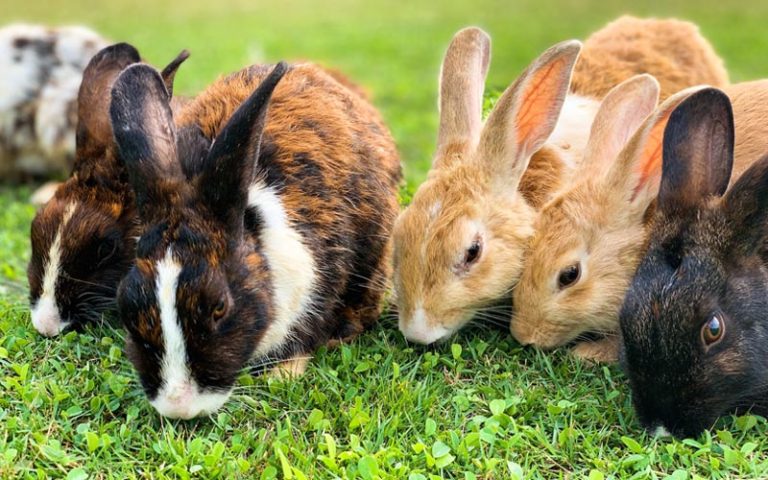Can Rabbits Eat Cucumbers?
Yes, rabbits can eat cucumbers in moderation. This crunchy vegetable is safe and hydrating for them.
Cucumbers are a refreshing treat for rabbits, providing essential hydration and nutrients. Many rabbit owners seek safe snacks to enhance their pets’ diets.
Incorporating vegetables like cucumbers can diversify a rabbit’s meals, making them more enjoyable. Cucumbers are low in calories, making them an ideal choice for occasional feeding.
However, it’s crucial to introduce any new food gradually. Always wash cucumbers thoroughly to remove pesticides and contaminants. Keep in mind that cucumbers should never replace a rabbit’s primary diet of hay and fresh vegetables.
Understanding what foods are safe ensures your rabbit remains happy and healthy while enjoying a varied diet.
Introduction To Rabbits And Their Diet
Rabbits are popular pets known for their gentle nature. Understanding their diet is crucial for keeping them healthy. A well-balanced diet helps rabbits thrive and live longer. Many pet owners wonder about various foods, including cucumbers. This section will explore the essentials of a rabbit’s diet.
The Rabbit’s Dietary Basics
Rabbits are herbivores. Their diet mainly consists of:
- Hay: Provides essential fiber.
- Pellets: Offers balanced nutrition.
- Fresh greens: Supplies vitamins and minerals.
Hay should make up about 75% of their diet. It keeps their digestive system healthy. Fresh pellets and vegetables complete their meals.
Importance Of Vegetables In A Rabbit’s Diet
Vegetables play a vital role in a rabbit’s nutrition. They provide necessary vitamins and hydration. Here are some key points:
- Fresh greens improve digestion.
- They help maintain healthy teeth.
- Variety prevents boredom in meals.
Common safe vegetables include:
| Vegetable | Benefits |
|---|---|
| Carrots | Rich in beta-carotene |
| Leafy greens | High in fiber and vitamins |
| Cucumbers | Low in calories and hydrating |
Introduce new vegetables slowly. Monitor for any digestive issues. Always wash vegetables thoroughly before serving.
Cucumbers Unpeeled
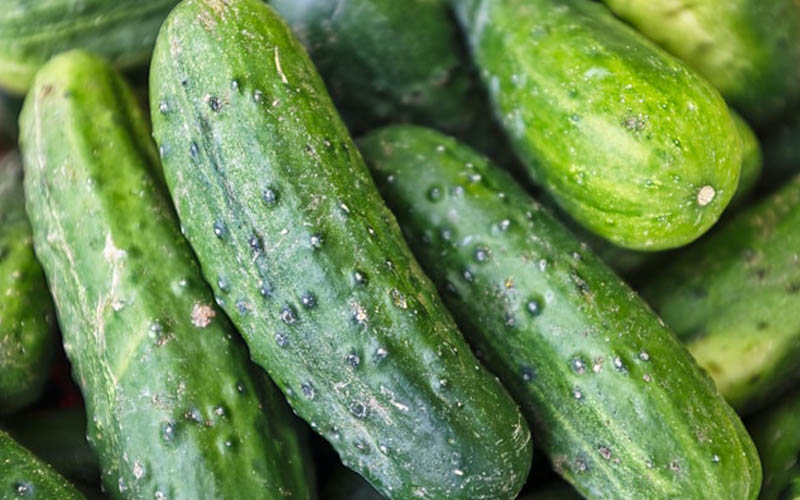
Cucumbers are a refreshing snack for humans and rabbits alike. Many pet owners wonder if rabbits can enjoy cucumbers, especially the peel. This section explores the benefits of unpeeled cucumbers.
Nutritional Profile Of Cucumbers
Cucumbers are low in calories but high in water content. They provide essential nutrients for both humans and rabbits. Here’s a breakdown of their nutritional profile:
| Nutrient | Amount per 100g |
|---|---|
| Calories | 16 |
| Water | 95% |
| Fiber | 0.5g |
| Vitamin K | 16.4 µg |
| Potassium | 262 mg |
The peel of the cucumber contains most of its fiber and vitamins. This makes unpeeled cucumbers a nutritious choice for rabbits.
Benefits Of Cucumbers For Humans
Cucumbers offer various health benefits for humans. Here are some key advantages:
- Hydration: Cucumbers are 95% water, keeping you hydrated.
- Low in calories: Great for weight management.
- Rich in nutrients: Provides vitamins and minerals.
- Digestive health: Fiber aids in digestion.
- Skin health: Hydrating properties help improve skin.
Including cucumbers in your diet can enhance your overall well-being. Their refreshing taste and crunchy texture make them a favorite snack.
Rabbits And Cucumbers: A Good Match?
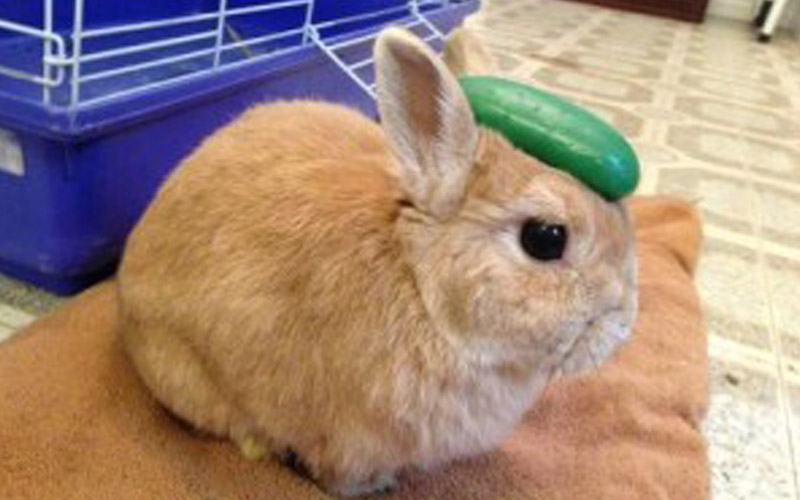
Rabbits enjoy a variety of foods. Cucumbers can be a refreshing treat. They offer hydration and some nutrients. But are they suitable for rabbits? Let’s explore this topic.
Cucumbers In A Rabbit’s Diet
Cucumbers can be a part of a rabbit’s diet. They are low in calories and high in water content. Here are some benefits:
- Hydration: Cucumbers contain about 95% water.
- Low Calories: Perfect for weight management.
- Fiber: Helps with digestion.
Serve cucumbers in moderation. Too much can upset their stomach. Cut cucumbers into small pieces for easy eating. Always wash them thoroughly to remove pesticides.
Potential Risks And Considerations
While cucumbers have benefits, some risks exist. Monitor your rabbit’s health after introducing cucumbers.
| Risk | Description |
|---|---|
| Diarrhea | Too much cucumber can cause loose stools. |
| Stomach Upset | Some rabbits may have sensitive stomachs. |
Introduce cucumbers slowly. Observe any changes in behavior or health. Consult a vet if unsure. Always prioritize your rabbit’s well-being.

Credit: www.centralvichay.com
Feeding Cucumbers To Rabbits Safely
Rabbits can enjoy cucumbers, but safety is key. This crunchy treat has many benefits but must be given correctly. Let’s explore how to feed cucumbers to rabbits safely.
Proper Portion Sizes
Portion sizes matter for a rabbit’s health. Too much cucumber can upset their stomach. Follow these guidelines:
- Adult rabbits: 1-2 slices per serving.
- Baby rabbits (over 12 weeks): Start with a small piece.
- Monitor your rabbit’s response to cucumbers.
Always wash cucumbers thoroughly. Remove any pesticides or dirt. Cut them into small, manageable pieces to prevent choking.
Frequency Of Feeding Cucumbers
Frequency is just as important as portion size. Cucumbers should not be a daily treat.
Here’s a simple feeding schedule:
| Rabbit Age | Feeding Frequency |
|---|---|
| Adult Rabbits | 1-2 times a week |
| Baby Rabbits | Occasionally, only small amounts |
Always provide fresh hay and water. Cucumbers should be a small part of their diet. Balance is essential for a happy, healthy rabbit.
Preparing Cucumbers For Your Rabbit
Feeding your rabbit cucumbers is a tasty treat. Proper preparation ensures safety and nutrition. Here’s how to prepare cucumbers correctly.
Washing And Cutting Techniques
Cleaning cucumbers is vital. Pesticides and dirt can harm your rabbit. Follow these steps:
- Rinse the cucumber under cool running water.
- Use a vegetable brush to scrub the skin.
- Dry the cucumber with a clean towel.
After washing, cut the cucumber into small pieces. Aim for bite-sized chunks. This helps your rabbit eat easily.
Organic Vs. Non-organic Cucumbers
Choosing between organic and non-organic cucumbers matters. Here are some key points:
| Type | Benefits | Considerations |
|---|---|---|
| Organic | Free from harmful pesticides and chemicals. | May cost more than non-organic. |
| Non-organic | Typically cheaper and widely available. | May contain pesticide residues. |
Choosing organic cucumbers is safer for your pet. Always wash non-organic cucumbers thoroughly.
Make cucumber treats special by mixing them with other safe veggies. Your rabbit will enjoy the variety!
Alternatives To Cucumbers
Rabbits enjoy a variety of vegetables beyond cucumbers. Offering diverse options keeps their diet interesting and nutritious. Here are some great alternatives.
Other Safe Vegetables For Rabbits
- Carrots: A sweet treat that many rabbits love.
- Bell Peppers: High in vitamins and colorful.
- Broccoli: Packed with nutrients, but offered in moderation.
- Leafy Greens: Kale, romaine, and cilantro are excellent choices.
- Squash: Zucchini and yellow squash are safe and tasty.
- Radishes: Crunchy and full of flavor, but use sparingly.
Diversifying Your Rabbit’s Diet
Mixing vegetables provides essential nutrients. A varied diet supports overall health. Aim for fresh, organic options when possible.
Try introducing new vegetables gradually. Monitor your rabbit’s reaction. If they enjoy it, keep it in their diet.
| Vegetable | Benefits | Serving Size |
|---|---|---|
| Carrots | High in beta-carotene | 1-2 small pieces |
| Bell Peppers | Rich in vitamin C | 1 small slice |
| Broccoli | Good source of fiber | 1 small floret |
| Leafy Greens | High in vitamins A and K | 1-2 cups |
Remember to wash all vegetables thoroughly. Freshness is key for your rabbit’s health.
Monitoring Your Rabbit’s Health
Keeping a close eye on your rabbit’s health is crucial. Diet impacts overall well-being. Cucumbers can be part of their diet, but monitoring is vital.
Signs Of Good Digestion
Good digestion is essential for your rabbit’s health. Look for these signs:
- Regular droppings: Small, firm, and plenty of them.
- Active behavior: Playful and energetic throughout the day.
- Healthy appetite: Enjoys hay, veggies, and pellets.
- Normal water intake: Drinks adequate water daily.
Monitor your rabbit’s eating habits. A sudden change may indicate an issue.
When To Consult A Vet
Consult a vet if you notice any of these signs:
- Loss of appetite: Not eating for more than 24 hours.
- Abnormal droppings: Small, hard, or no droppings.
- Behavior changes: Lethargy or hiding more than usual.
- Signs of discomfort: Teeth grinding or unusual postures.
Prompt action can prevent serious health issues. Regular vet check-ups ensure your rabbit stays healthy.

Credit: www.youtube.com
Rabbit Owners Speak: Real Experiences
Many rabbit owners share their thoughts on feeding cucumbers. Their experiences provide insight into how rabbits react to this vegetable. Here are some real testimonials and case studies from those who know rabbits best.
Testimonials From Rabbit Owners
Rabbit owners often share their positive experiences with cucumbers. Here are a few testimonials:
- Sarah M. – “My rabbit loves cucumbers! She hops around excitedly when I cut one.”
- Tom R. – “I give my rabbit cucumber slices. He enjoys them and stays hydrated.”
- Emily J. – “Cucumbers are a great treat. My bunny begs for them!”
Case Studies And Anecdotes
Several case studies highlight the benefits of cucumbers for rabbits. Here are some anecdotes:
| Owner | Rabbit’s Name | Reaction to Cucumbers |
|---|---|---|
| Laura K. | Binky | Excited and playful, loves crunching. |
| John D. | Fluffy | Sniffs and then nibbles happily. |
| Linda P. | Snowball | Will chase the cucumber slice! |
These stories show how rabbits enjoy cucumbers. Many owners find cucumbers a healthy treat. Always ensure moderation when feeding them.
Frequently Asked Questions
Yes, rabbits can eat cucumber with the skin on. The skin provides extra fiber, which is beneficial for their digestion. Always wash the cucumber thoroughly to remove pesticides and serve in moderation. Too much cucumber may lead to digestive upset.
Limit cucumber to small portions. Offer a few slices a few times a week. Too much can upset your rabbit’s stomach. Always introduce new foods gradually. Ensure a balanced diet with hay and pellets as staples. Fresh veggies should complement, not replace, their main diet.
Rabbits should avoid certain vegetables. These include onions, garlic, leeks, and shallots. Potatoes, avocados, and rhubarb are also harmful. Iceberg lettuce can cause digestive issues. Always ensure your rabbit’s diet consists mainly of hay, fresh greens, and safe vegetables for optimal health.
Rabbits should avoid eating chocolate, caffeine, processed foods, and sugary treats. Foods like onions, garlic, and potatoes can be toxic. High-starch vegetables and fruits should also be limited. Always provide fresh hay, vegetables, and a balanced diet for optimal health.
Conclusion
Rabbits can safely enjoy cucumbers in moderation. This crunchy vegetable offers hydration and some essential nutrients. Always wash cucumbers thoroughly and remove seeds before feeding them to your furry friend. Keeping a balanced diet is crucial for your rabbit’s health.
Treat them occasionally, and watch them enjoy this refreshing snack!

